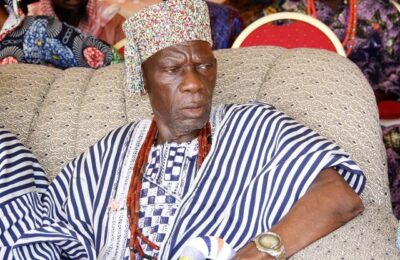In the Kafkaesque corridors of Nigerian jurisprudence, reality is often bent to fit the contours of power. A chilling episode now unfolds before the nation: Senator Natasha Akpoti-Uduaghan, a sitting member of the National Assembly representing Kogi Central, is being arraigned—not for subversion, corruption, or sedition—but for articulating fear. Yes, fear.
The Attorney General of the Federation and Minister of Justice, Prince Lateef Fagbemi (SAN), has initiated criminal proceedings against the senator following her public declaration on Channels Television’s Politics Today on April 3, 2025. In that live broadcast, she alleged a plot to assassinate her, daring to name Senate President Godswill Akpabio and former Kogi State Governor Yahaya Bello as the orchestrators. Instead of triggering a thorough investigation or protective action, her cries of imminent danger have metamorphosed into a penal offense—defamation, under Section 391 of the Penal Code.
One can scarcely conjure a more disquieting inversion of justice. The distressed has become the defendant, while those named in her lament are now poised to appear as holy witnesses against her. It is a spectacle that borders on the grotesque: a woman speaks her truth, fearing for her life, and the apparatus of state responds not with sanctuary but with summonses.
The Nigerian public has not taken this development lightly. Social media, often the pulse of the nation’s conscience, has erupted in incredulity and anger. Nigerian lawyer and rights advocate Inibehe Effiong tweeted:
“The idea that Natasha should be facing charges for alleging a threat to her life instead of the police investigating her claims is a tragedy. This is legal gaslighting!”
Similarly, activist Rinu Oduala posted on X (formerly Twitter):
“This isn’t justice. It’s persecution. If a female senator can be publicly humiliated for crying out, what chance does an ordinary woman have in Nigeria? The system isn’t broken; it was built this way.”
A more satirical take came from user @AbdulkareemSpeaks:
“Nigeria is the only country where if you scream ‘Help!’ loudly enough, they’ll jail you for disturbing the peace while the thief gives witness in court.”
These voices ripples the broader unease—a deep high sea, gnawing fear that power in Nigeria no longer protects but punishes. What is unfolding is not merely a court case but a theater of intimidation, a performance cloaked in the regalia of legality yet steeped in paranoia. We are witnessing the anatomy of political silencing dressed up as due process.
What message does this send to the fragile fabric of our democracy? That fear must be internalized and never voiced? That reputations of the politically exalted outweigh the sacredness of life itself? That public figures, especially women, must tread the minefield of Nigerian politics with muffled lips and bulletproof hearts?
This moment is more than judicial overreach; it is a cautionary tale. When the state chooses to litigate fear rather than investigate threats, it enshrines impunity and endangers the vulnerable. Senator Natasha’s plight is a harbinger of a deeper malaise—a polity where power brooks no accusations, no matter how desperate or credible.
In the end, this is not merely a trial of Natasha Akpoti-Uduaghan. It is a trial of our collective conscience. It is the haunting reminder that in today’s Nigeria, to scream in the face of danger may not bring rescue—but retribution.
And therein lies the terror.
– Inah Boniface Ocholi writes from Ayah – Igalamela/Odolu LGA, Kogi state.
08152094428 (SMS Only)




